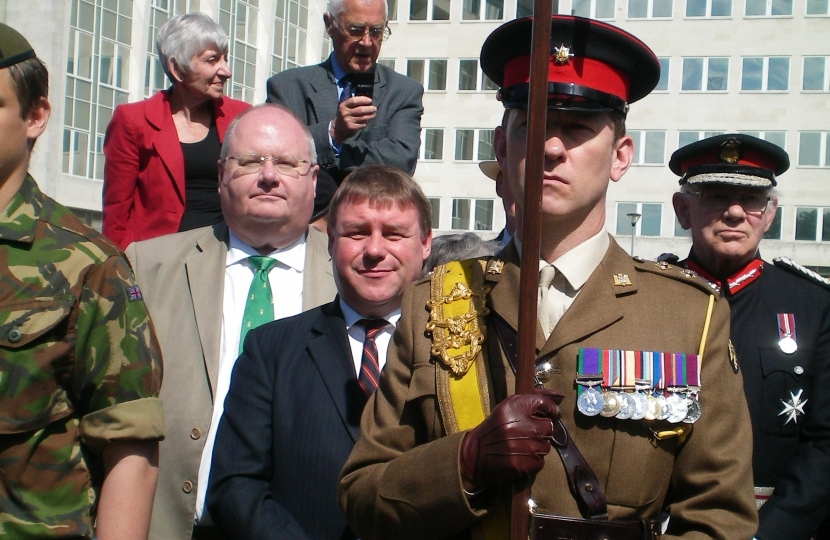
Rayleigh and Wickford MP, Mark Francois, who served as a TA officer in the loyal Royal Anglian regiment during the Cold War, recently attended a special commemorative service and parade in Brentwood, to mark the 200th anniversary of the capture of a French Eagle by the Essex Regiment, at the Battle of Salamanca in 1812.
The Essex Regiment was amalgamated into the Royal Anglian Regiment some years ago but the Salamanca Eagle remains a firm part of the Royal Anglian Regiment’s tradition and some units of the regiment still wear the Eagle emblem on their uniforms today, to commemorate Wellington’s great victory in the Peninsula Wars.
The service and parade, which was attended by HRH the Duke of Gloucester, who is the Colonel in Chief of the Royal Anglian Regiment, also had a poignant element as it marked the merging of the Essex Regiment Association into the Royal Anglian Regiment Association. On parade were a number of veterans from WWII, including those who had stormed ashore with the Second Battalion of the Essex Regiment on D-day in June 1944. The veterans paraded after the service whilst HRH the Duke of Gloucester conducted an inspection, all of which was watched over by the Salamanca Eagle which was proudly on display.
Commenting on the Salamanca commemoration, Mark Francois said:
“The Royal Anglian Regiment, whose first Battalion are serving in Afghanistan at the moment to help protect our freedom from terrorism, has a proud regimental history and this includes that of their predecessors in the Essex Regiment, who are one of the few ever to capture a French eagle – a regimental standard - in battle. Having served in the Royal Anglians myself, I was very pleased to attend the 200th anniversary service, commemorating the battle which actually took place in July 1812 but I was also very pleased to see Essex Regiment veterans on parade. I spent a lot of time talking to a Major who served in the Essex Regiment and who had won the Military Cross, shortly after landing at D-Day. The Essex Regiment Association has now been absorbed into the Royal Anglian Regiment Association but their heritage and traditions will live on and commemorating the Battle of Salamanca is a very important part of that.”
